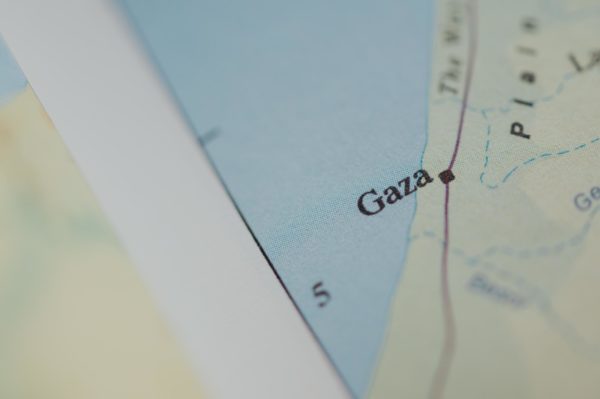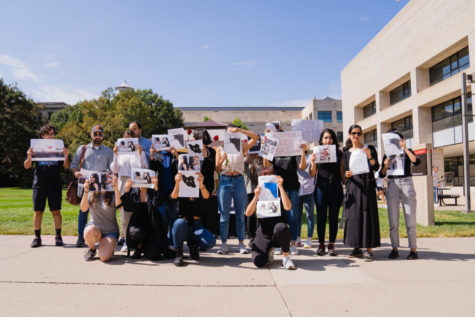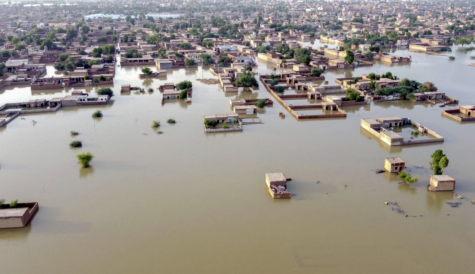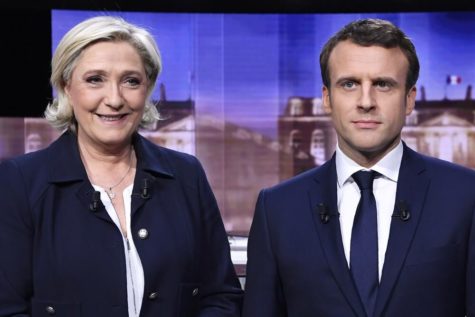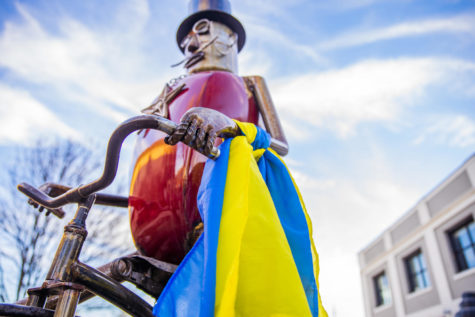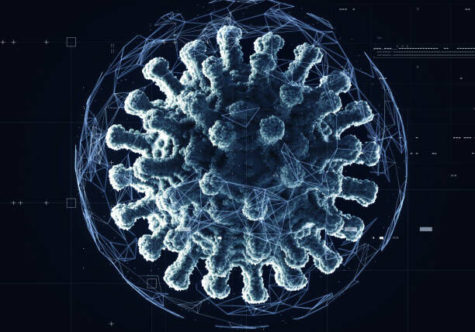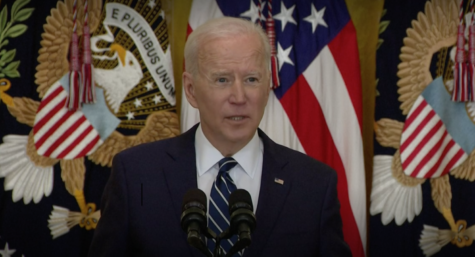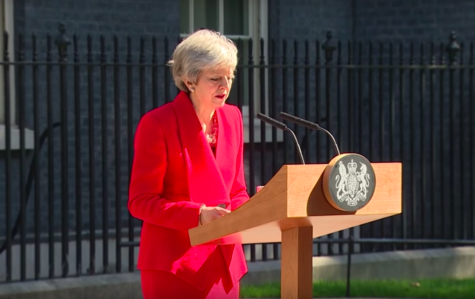As Libyan plans unfold, NTC chairman offers thanks
September 1, 2011
Libya’s transitional leaders outlined Thursday the welter of pressing humanitarian, reconstruction and political needs their country faces, but also took a few moments to thank those countries whose intervention since March helped rebel forces oust their longtime leader.
“I would like to thank the international community for standing by us,” Mustafa Abdul-Jalil, the chairman of the National Transitional Council, told a supportive audience composed of representatives from some 60 countries who had gathered at the Elysee Palace to discuss Libya’s moves toward democracy. “I would like to thank everyone and pay tribute to everyone who was behind this mammoth undertaking.”
Jalil called for the Libyan people to forgive their countrymen for “all the massacres and the hardship that was done,” but excepted those involved with “the burning and the attacks and the women that were raped and the kids that were intimidated by Moammar Gaddhafi. This would be left to history and the law to take its course.”
French President Nicolas Sarkozy applauded the NATO effort, which has left ousted Libyan leader Moammar Gadhafi seeking to rally his supporters via phone calls from unknown locations to a Syrian-based television station. “There have been tens of thousands of lives saved in Libya thanks to the intervention,” Sarkozy said.
The work was important because of Libya’s proximity to many NATO countries, the French president said. “It’s a duty for Europe to be concerned with the balance and peace in the areas that are close to Europe.”
But the battle is not over, he emphasized, noting that attendees agreed that NATO strikes must continue until Gadhafi and his supporters “are no longer a threat to Libya.”
The participants of the contact group, whom Sarkozy called “Friends of Libya,” agreed that the NTC should undertake a process of reconciliation and pardon.
But, in comments echoing Jalil’s, British Prime Minister David Cameron noted that evidence of “unspeakable crimes” has come to light. “These crimes must be investigated and the guilty brought to justice,” he said.
U.N. Secretary-General Ban Ki-moon said Thursday’s conference participants agreed that the United Nations must lead Libya’s transitional leaders in their planned transition to democracy.
Toward that end, he said, the most immediate challenge will be to address the country’s urgent humanitarian needs — medicine and water are in short supply, and about 860,000 people, including skilled guest workers, have left the country since February.
Other pressing needs include ensuring that human rights are protected and the institutions of government needed to write a new constitution and prepare for elections are set up, he said.
“Time is of the essence,” he added. “In the days ahead, we will look to the Security Council for prompt action and a mandate.”
U.N. humanitarian teams are already in Tripoli, and the world body is planning to deploy a civilian mission “as rapidly as possible,” he said.
The U.N.’s adviser for post-conflict planning, Ian Martin, was planning to travel to Tripoli after the meeting “to accelerate preparations for a U.N. assistance mission that reflects the needs and priorities of the Libyan people.”
“It was a worthwhile and productive day,” U.S. Secretary of State Hillary Clinton told reporters. “As the new Libyan authorities consolidate their power, we will support their efforts to demobilize and integrate fighters into a single security force,” she said.
She noted that nearly 70 nations, including 18 African nations, the Arab League and Russia, have recognized the NTC’s authority, and called for others to follow suit.
Much work remains to build “a stable, unified and free Libya,” she said. “The challenges may be formidable, but so has the progress we have already seen.”
Examples of that progress include Italy’s reopening of its embassy in Tripoli and U.S. State Department plans to send a team to the capital “to check out our building and see what we need to do to get our diplomatic presence at the highest level again,” she said.
Prior to joining the session, Clinton met with Jalil and Mahmoud Jabril, the council’s prime minister. Their talks focused on security and the need to pursue justice and reconciliation in a way that meets international standards, officials said.
Clinton and the NTC also discussed the need for transparency in tracking money being returned to the Libyan people after the release of frozen assets, the officials said.
The secretary of state also made clear that U.S. officials believe Lockerbie bomber Abdelbeset Ali Mohmed al Megrahi should be behind bars, the officials said.
“They have assured us that they understand the sensitivities surrounding this case and they will give the matter the consideration it richly deserves,” Clinton told reporters after the meeting.
Al Megrahi is said to be comatose, under the care of his family in Tripoli. Scotland’s justice minister granted him an early release two years ago after his attorneys and Scottish authorities said he was dying of cancer and had only had three months to live.
Addressing the conference, Clinton paid tribute to the achievements of Libya’s anti-Gadhafi forces, and said that must not change.
“Libya’s transformation has been and must continue to be Libyan-led. But the international community has a crucial role to play in supporting the Libyans in bringing about a transition to democracy that is just, inclusive and sustainable.”
The gathering of the International Contact Group on Libya — a coalition of governments and international organizations — is the latest in a series of meetings since the war began in February.
Representatives of the United Nations, NATO, the African Union and the Arab League were also in attendance.
The European Union’s foreign policy chief, Catherine Ashton, announced Thursday that economic sanctions had been lifted on 28 Libyan entities, particularly those involving ports and the energy and banking sectors.
The council has estimated it needs 5 billion euros ($7.1 billion) to address emergency needs.
By Friday, the United States expects to have delivered $700 million to the NTC to help it pay for such necessities as fuel and civil operating costs for salaries. Another $800 million is on the way, Clinton said.
Britain started delivery of money Wednesday, flying the equivalent of more than $227 million to a bank in Benghazi to be used for medicine and food and to pay government employees, the foreign secretary said in a statement.
France plans to release the equivalent of $2.1 billion, blocked at the start of the war, Foreign Minister Alain Juppe told Radio RTL on Thursday. Italy and Spain said Wednesday they were lifting blocks on Libyan assets.
Meanwhile, Russia is recognizing the transitional council as Libya’s governing authority, the Foreign Ministry said Thursday in a statement.
Russia has been a critic of the NATO bombing campaign that began in March after the U.N. Security Council approved a resolution for the use of force, with the exception of a ground invasion, to protect civilians. Russia, a member of the Security Council, abstained from the vote.
Among those attending the meeting in Paris was Algerian Foreign Minister Mourad Medelci, who said Thursday that Gadhafi is not in his country.
CNN’s Matthew Chance, Jonathan Wald and Saskya Vandoorne contributed to this report.






